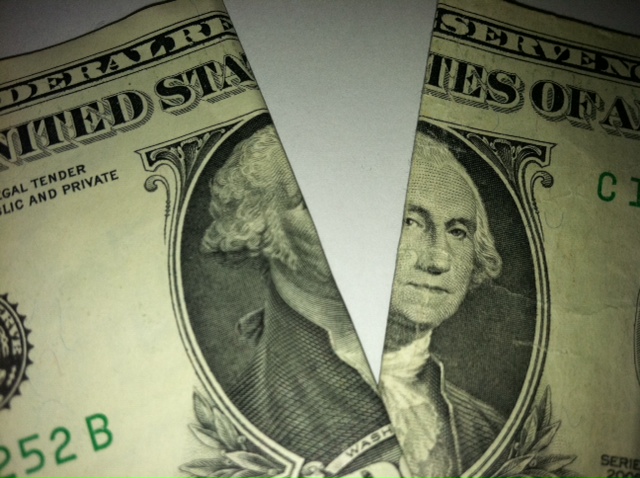Stock buybacks are trumping dividends for investors. We recently took a look at how much stocks with share repurchase plans are outperforming those that just raise dividends, but we would also note that companies that buy back lots of stock often also give good dividends to holders. 24/7 Wall St. has identified four significant stock buybacks and share repurchase plans announced or updated in July that are simply too significant for investors to ignore. These come from Capital One Financial Corp. (NYSE: COF), Halliburton Co. (NYSE: HAL), Morgan Stanley (NYSE: MS) and Smith & Wesson Holding Corp. (NASDAQ: SWHC).
We have broken these out, not just by size, from all the ongoing stock buybacks. These are broken out by how significant they are either against the free float of shares or what it means for the future direction of each company. We have added in color on each company as well.
Capital One Financial Corp. (NYSE: COF) announced at the start of July that it had authorized a stock buyback of up to $1 billion worth of its common stock, which is subject to the closing of the sale of its Best Buy private label and co-branded credit card accounts. The Federal Reserve also gave it permission to conduct this buyback through March 31, 2014, and Capital One said at the time that it sees the sale being completed in the third quarter of 2013. That means that the credit card lender and bank will be spending $1 billion in roughly a six-month period, versus a $40 billion market value now. Our expectation is that this means that using cash for a buyback and selling assets is a signal by Capital One that it will be less aggressive in making large outside purchases ahead, and that it is not diluting shareholders any longer.
Halliburton Co. (NYSE: HAL) may have raised its dividend by almost 40% back in February, but the dividend yield of 1.1% is simply too small to care about. What is not too small to care about is the fresh news that the company has decided to juice up its common stock buyback plan by $4.3 billion to $5 billion. What matters here is that Halliburton already had spent $1 billion buying back its stock in the prior quarter, and the $42 billion market value implies that the float will shrink by another 12% ahead. With somewhere close to 82% of the float held by mutual funds and institutional shareholders, this will be one to watch. Shares were down 2% on Monday at $44.95 in late-day trading, against a 52-week range of $29.25 to $46.66 and against a consensus analyst upside price target of $51.73.
Morgan Stanley (NYSE: MS) disclosed that the Federal Reserve had approved the investment banking firm, or bank holding company without a bank, to repurchase $500 million worth of stock. This will feel small, considering that Morgan Stanley’s market value is $54 billion. This was the first bit of regulatory lenience, and it is no accident that this helped drive the stock price up to a new recent high of $27.95. Now the stock is back within striking distance of the $30 or so post-recession high, and it gets the investor community more and more comfortable with the post-Mack leadership.
Smith & Wesson Holding Corp. (NASDAQ: SWHC) ramped up a per-share fixed-price cash tender offer from $10.00 per share to $11.00 per share for up to $75 million earlier in July. What mattered is that $75 million still was being spent along with another $25 million in open market or privately negotiated transactions. The gun-maker upped its buyout because the pre-buyback price was $9.30 on June 13, 2013, and its stock price had risen to $10.62 on the close of July 10, before this higher price was announced. The full $100 million compares to a market cap of almost $700 million now, and it signals that gun sales are still strong enough that S&W is willing to chase its share price ever higher, against a 52-week range of $7.40 to $11.40.
It’s Your Money, Your Future—Own It (sponsor)
Retirement can be daunting, but it doesn’t need to be.
Imagine having an expert in your corner to help you with your financial goals. Someone to help you determine if you’re ahead, behind, or right on track. With SmartAsset, that’s not just a dream—it’s reality. This free tool connects you with pre-screened financial advisors who work in your best interests. It’s quick, it’s easy, so take the leap today and start planning smarter!
Don’t waste another minute; get started right here and help your retirement dreams become a retirement reality.
Thank you for reading! Have some feedback for us?
Contact the 24/7 Wall St. editorial team.





